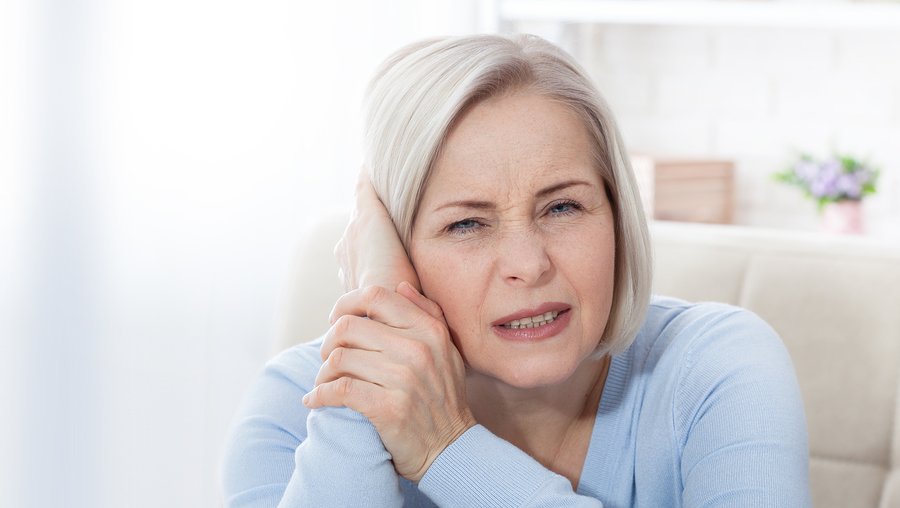Why Does My Ear Hurt? Possible Causes of Ear Pain


Earaches are very common among children. However, adults can get them, too, and the discomfort is not always related to an underlying medical condition. For instance, you may experience ear pain if you wear a tight hat or poorly fitting earphones, grind your teeth, clench your jaw, or sleep on a hard surface.
Some other common causes of ear pain include:
Earwax Buildup
Earwax (cerumen) is an antibacterial substance that is continually produced by the body to protect and lubricate the ears. With chewing and other jaw movements, earwax normally moves out of each ear and flakes off the skin. As such, the ears are designed to be “self-cleaning.” Sometimes, however, earwax may build up, harden, and block the ear canal. Impacted earwax can cause ear pain and interfere with hearing.
A physician can safely remove impacted earwax from your ear. Don’t try to remove it yourself with a cotton swab or other object—this may push the wax deeper into your ear canal, making it more difficult to remove, and possibly damage your eardrum.
Airplane Ear
Ear barotrauma, or airplane ear, occurs when the air pressure in the middle ear does not match the air pressure in the outer environment. Unbalanced air pressure can prevent the eardrum from vibrating normally. Usually, the Eustachian tube, a narrow passageway to the middle ear, is able to regulate and equalize the air pressure on both sides of the eardrum. However, if the outside air pressure changes very rapidly— such as when an airplane is climbing after takeoff or descending for landing—the Eustachian tube may not be able to respond quickly enough to equalize the pressure. As a result, ear barotrauma symptoms may develop, such as ear pain, a feeling of stuffiness in the ear, and slight to moderate hearing loss.
To counter the effects of airplane ear, it can be helpful to yawn, swallow, or chew gum during a flight’s ascent and descent. If the symptoms are severe or last longer than a few days, it’s best to see a physician.
Swimmer’s Ear
An infection in the outer ear canal, swimmer’s ear is often caused by water that remains trapped in the ear after swimming or bathing, creating a moist environment that serves as an ideal breeding ground for bacteria. The symptoms of swimmer’s ear include ear pain, swelling, and itching. A physician may prescribe antibiotic ear drops to help resolve the infection.
A Middle Ear Infection
As a result of the common cold, allergies, or a sinus infection, mucus can build up behind the eardrum and trap a virus or bacteria. A middle ear infection can cause ear pain and inflammation. If left untreated, the infection may worsen, spread, and possibly lead to hearing loss. After diagnosing the underlying cause of the infection, a physician may prescribe antibiotic treatment (for a bacterial infection) or an antihistamine, nasal decongestant, or steroid.
Referred Ear Pain
Ear pain is sometimes referred from another part of the body. For instance, a toothache, tonsillitis, or cervical (neck) arthritis can potentially affect the ear because the nerves in the face and neck pass very close to the inner ear.
When to Seek Medical Treatment
In sum, there are many possible causes of ear pain, many of which are not serious. If your ear pain is severe, does not improve with a few days of home treatment, or is accompanied by a high fever, sore throat, or skin rash, you should see a physician right away.
If you’re a member of Optimum Direct Care in Orlando, FL, come and see our board-certified family practice physicians. We will investigate the cause of your ear pain and help you feel better.
